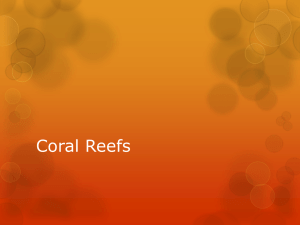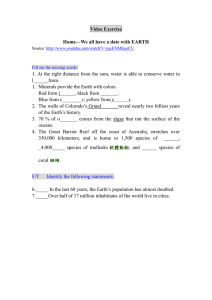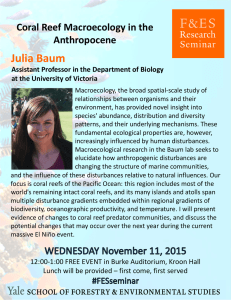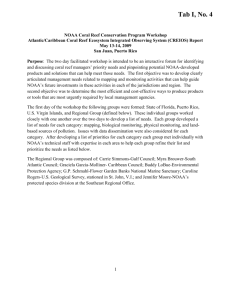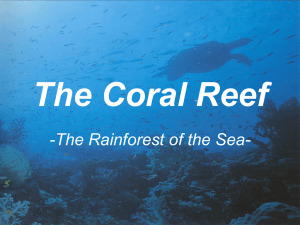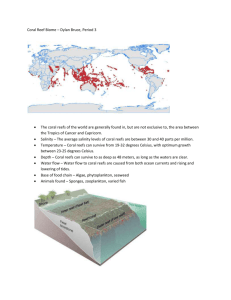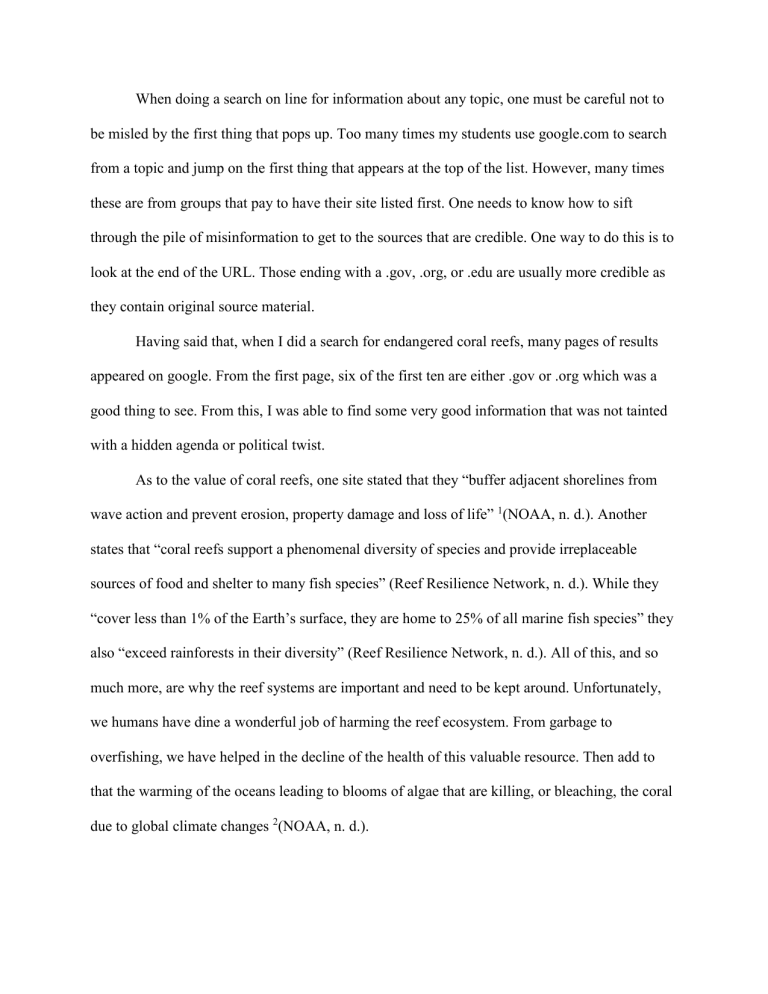
When doing a search on line for information about any topic, one must be careful not to be misled by the first thing that pops up. Too many times my students use google.com to search from a topic and jump on the first thing that appears at the top of the list. However, many times these are from groups that pay to have their site listed first. One needs to know how to sift through the pile of misinformation to get to the sources that are credible. One way to do this is to look at the end of the URL. Those ending with a .gov, .org, or .edu are usually more credible as they contain original source material. Having said that, when I did a search for endangered coral reefs, many pages of results appeared on google. From the first page, six of the first ten are either .gov or .org which was a good thing to see. From this, I was able to find some very good information that was not tainted with a hidden agenda or political twist. As to the value of coral reefs, one site stated that they “buffer adjacent shorelines from wave action and prevent erosion, property damage and loss of life” 1(NOAA, n. d.). Another states that “coral reefs support a phenomenal diversity of species and provide irreplaceable sources of food and shelter to many fish species” (Reef Resilience Network, n. d.). While they “cover less than 1% of the Earth’s surface, they are home to 25% of all marine fish species” they also “exceed rainforests in their diversity” (Reef Resilience Network, n. d.). All of this, and so much more, are why the reef systems are important and need to be kept around. Unfortunately, we humans have dine a wonderful job of harming the reef ecosystem. From garbage to overfishing, we have helped in the decline of the health of this valuable resource. Then add to that the warming of the oceans leading to blooms of algae that are killing, or bleaching, the coral due to global climate changes 2(NOAA, n. d.). Finding answers to solving the coral reef problems seems easy. Just point and click, there are many places that claim to have answers. However, keep the saying caveat emptor, which means buyer beware, in mind. In this case, one must educate themselves to be sure the information is accurate and credible. Do your homework on the organizations out there and support the ones that are really working towards a positive change. References 1 NOAA. (n. d.) Retrieved from https://oceanservice.noaa.gov/education/kits/corals/coral07_importance.html Reef Resilience Network. (n. d.) Retrieved from http://www.reefresilience.org/coral-reefs/reefsand-resilience/value-of-reefs/ 2 NOAA. (n. d.) Retrieved from https://oceanservice.noaa.gov/facts/coral_bleach.html

